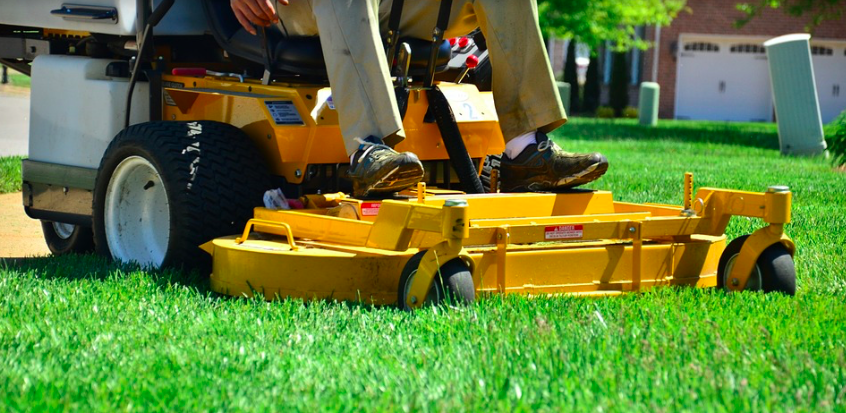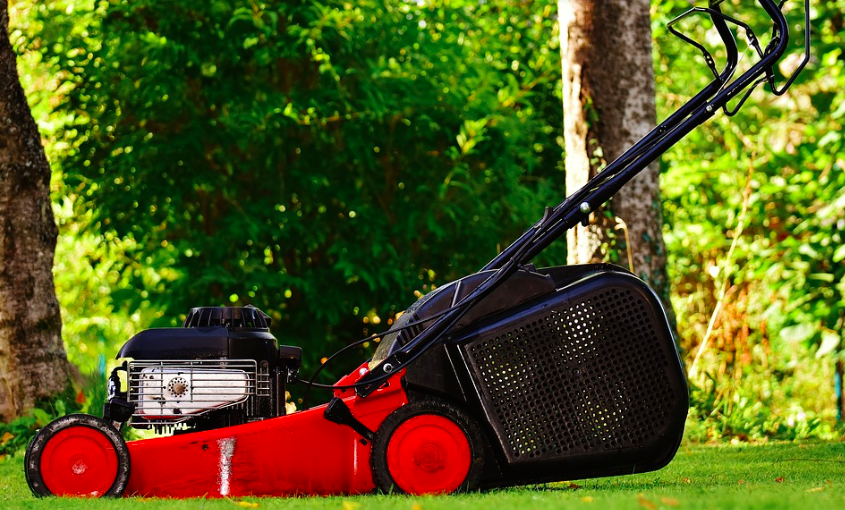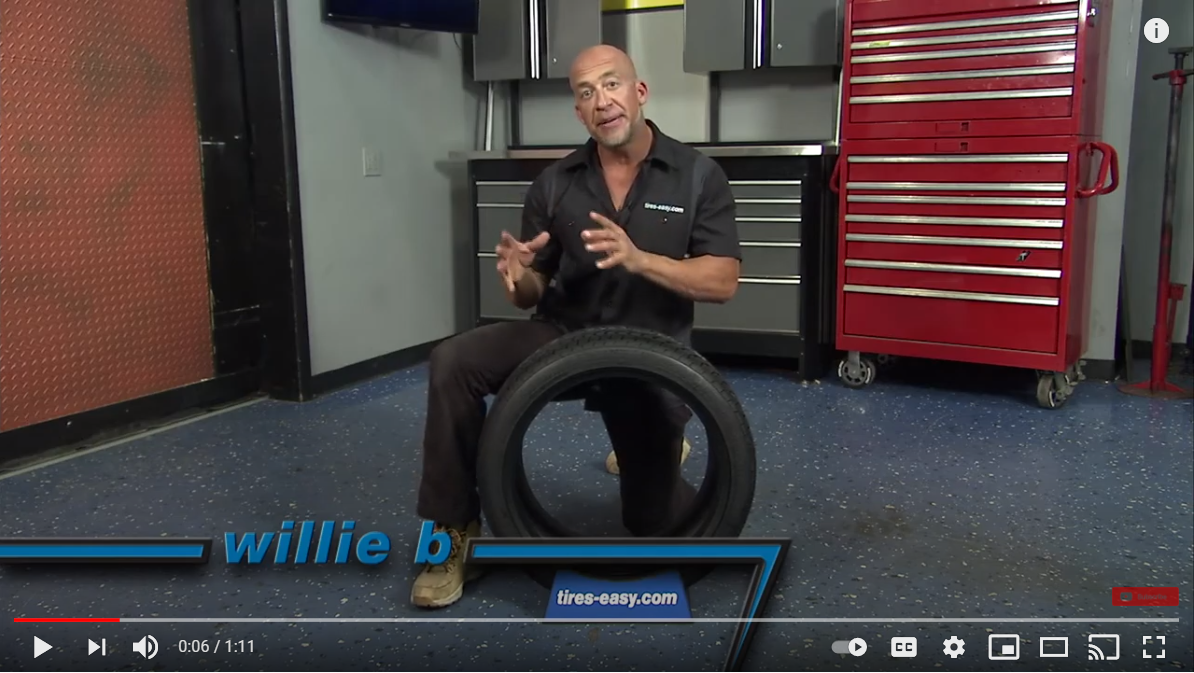Last Updated on February 17, 2024
Choosing the Right Utility Trailer Tires for Safe and Smooth Hauling
Whether you’re a professional or a do-it-yourself-er, there’s much to consider regarding quality landscaping. This is a big year, and you want to ensure everything runs smoothly. You want to make sure you do your best work. The result is a beautiful landscape drawing oohs and ahs from guests and people strolling through the neighborhood.
Having the equipment to take advantage of new trends and perennial park-like appeal would be best. This mini-guide provides a snapshot of gorgeous landscapes and a rundown of essential equipment for the best utility trailer tires. Here’s the information you need for great landscaping this summer.
Best Utility Trailer Tires
When hauling goods or recreational equipment, your utility trailer’s tires ensure a safe and smooth journey. Whether transporting construction materials, camping gear, or simply towing your boat, having the right utility trailer tires can make all the difference.
In this comprehensive guide, we’ll explore the world of utility trailer tires. From understanding the different types to selecting the best brands, we’ve got you covered. By the end of this article, you’ll have the knowledge to choose the perfect utility trailer tires that match your needs.
Types of Utility Trailer Tires
Utility trailer tires come in various types, each designed for specific purposes. Here are the common ones:
- Bias-Ply Tires: These are cost-effective and suitable for lighter loads. Bias-ply tires have a stiffer sidewall, making them less flexible but durable.
- Radial Tires: Known for their flexibility and stability, radial tires are excellent for heavy loads and highway use. They provide a smoother ride and longer tread life.
- ST (Special Trailer) Tires: ST tires are designed for trailer applications. They offer enhanced durability and load-carrying capacity, making them popular for utility trailers.
Choosing the Right Utility Trailer Tires
Selecting the right utility trailer tires involves considering various factors:
- Load Rating: Determine the weight your trailer will carry, including cargo. Choose tires with a load rating that exceeds this weight to ensure safety.
- Tire Size: Check your trailer’s manual for the recommended tire size. Opt for the size that matches your trailer’s specifications.
- Tread Pattern: The tread pattern affects traction and performance. For highway use, go for ribbed or highway tread patterns. For off-road or uneven terrain, choose lug or aggressive tread patterns.
- Ply Rating: Higher ply ratings indicate increased tire strength. Consider the ply rating based on your load requirements.
- Speed Rating: Ensure the tires’ speed rating matches or exceeds your towing speed to prevent overheating and damage.
- Brand Reputation: Stick to well-known brands for their quality and reliability in the trailer tire market.
Top Utility Trailer Tire Brands
- Carlisle: Known for their ST trailer tires, Carlisle offers a range of durable and reliable options suitable for various utility trailer applications.
- Maxxis: Maxxis provides high-quality trailer tires focusing on longevity and performance. Their offerings include radial and bias-ply designs.
- Goodyear: Goodyear’s Endurance line of trailer tires is popular for their durability and dependability, making them an excellent choice for long hauls.
- Kenda: Kenda offers a wide selection of ST trailer tires with innovative tread designs and excellent load-carrying capacity.
Tools You Need
The extensiveness of the project determines your tool needs. On the business end of things, there are tools any landscaping operation can’t do without. If you’re undertaking a DIY project in a good-sized space, at a minimum, you will need the following:
- Pickup truck: For the most part, a decent truck on its own could be enough to haul your goods
- Trailer: Landscapers often have to carry big stuff, including trees and mowers, which will require a trailer
- Trimmers: An edger for your yard and a hedge trimmer are definite musts; you’ll also want to invest in a heavy-duty line trimmer for brush and big clearing jobs.
- Leaf blower
- Chainsaw
- Mower: Riding mowers or commercial mowers are best for big jobs
- Hand tools: Including rake, pruner, shovel, trowel, wheelbarrow, broom
- Safety equipment: Goggles, gloves, earplugs
Now that you know what tools you need, it’s time to zone in and make sure you’ve got the essentials on lockdown.

Landscaping and Utility Trailer Tips
The first thing to consider for your landscaping trailer is whether you need an enclosed or open one. Your pickup has a limited towing capacity. Enclosed trailers weigh more than regular trailers, but the advantage is they protect against theft. The typical 6×12 single-axle open trailer can handle upwards of 2,000 pounds.
Before you buy a trailer and load it down with stuff, check your truck’s weight-carrying capacity and tires and choose accordingly. Consider the weight of all the tools you’ll be hauling, and leave room for landscaping materials such as bark, turf, and rocks.
You’ll need utility trailer tires that can handle the workload. The Velocity WR078 is a good all-around utility trailer tire with extra rubber underneath the tread, which protects it from flats and improves stability. At the same time, twin steel belts increase traction and durability.
Regarding brakes, the Department of Transportation requires you to have them on the trailer if it pushes your Gross Vehicle Weight over 3,000 pounds. Go with electric brakes, and check whether your state allows surge brakes if that’s what you’re considering.
Get a trailer with a wood deck; they’re lighter, so you can haul more, and if you don’t have a truck yet, you’ll need a half-ton to move a landscaping trailer.

Tool Tips
When it comes to your mower, it’s a choice between a riding mower, lawn tractor, or push mower. A lawn tractor, such as the kind popularized by John Deere, is best if you’re a homeowner with half an acre or more to cover. The pros choose between zero-turn riding mowers and push mowers.
A push mower offers more flexibility for twists, turns, and steep slopes, while a riding mower offers speed and can cover big spaces. You can’t go wrong with a riding mower or tractor because many newer models can also handle steep slopes and sharp angles. The one thing they can’t take is tight spaces.
In terms of lawn edgers, be sure you know how to use one:
The best edger, according to Popular Mechanics, is the Ariens 986103. It has seven angle settings, a 21-inch wheelbase for improved accuracy, and solidity that eliminates annoying and unhelpful vibration.
Do your research online to determine the best chainsaws and leaf blowers before you buy. And, if you’re thinking of making a business out of this, check out these ten tips on how to succeed. Landscaping is a unique pursuit that starts with power tools, materials, and hard work. It ends with a space that looks like a piece of art. There’s nothing like the satisfaction of doing it well.
Maintenance and Longevity
Proper maintenance is essential to extend the lifespan of your utility trailer tires. Regularly check tire pressure, inspect for signs of wear or damage, and ensure proper alignment. This maintenance routine can significantly impact the longevity of your tires, saving you money in the long run.
Conclusion
Investing in the right utility trailer tires is crucial for every trailer owner. By understanding the different types, considering essential factors, and choosing reputable brands, you can ensure the safety and efficiency of your hauling adventures. Explore the wide range of utility trailer tires available at Tire Easy and confidently embark on your journeys.
When it comes to utility trailer tires, making the right choice is crucial for the safety and efficiency of your trailer. We’ve explored a comprehensive guide to help you navigate the options available. Whether you’re hauling cargo, equipment, or recreational gear, the best utility trailer tires can significantly improve performance and longevity.
Remember to consider factors like load capacity, tread design, and durability when making your selection. By choosing the right tires, you can ensure a smoother and more reliable towing experience, keeping your trailer and its contents safe on the road. Don’t hesitate – equip your utility trailer with the best tires for your specific needs today.
Ready to upgrade your utility trailer tires? Please browse our selection at Tire Easy and experience worry-free hauling today!
FAQs
What size tire goes on a utility trailer?
The tire size for a utility trailer depends on the trailer’s specifications. Common sizes include 13-inch, 14-inch, and 15-inch tires, but checking your trailer’s manual or specifications for the correct tire size is essential.
What is the best type of tire for a trailer?
The best type of tire for a trailer is typically a trailer-specific tire, known as “trailer tires” or “ST tires.” These tires are designed with stronger sidewalls and stiffer construction, making them more suitable for the unique demands of towing.
Can you put regular tires on a utility trailer?
While it’s possible to put regular automotive tires on a utility trailer, it’s not recommended. Trailer-specific tires (ST tires) are engineered to handle the weight distribution and stress factors associated with towing, offering better performance and safety.
What are the two types of trailer tires?
There are primarily two types of trailer tires: bias-ply and radial. Bias-ply tires have crisscrossed layers of fabric, making them robust and less expensive. Radial tires have steel belts, providing better performance, heat resistance, and a smoother ride. The choice depends on your trailer’s specific needs and your preferences.









